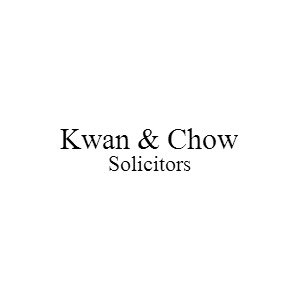Best Private Equity Lawyers in Hong Kong
Share your needs with us, get contacted by law firms.
Free. Takes 2 min.
Or refine your search by selecting a city:
List of the best lawyers in Hong Kong
About Private Equity Law in Hong Kong
Private equity in Hong Kong involves investments in privately held companies or buyouts of public companies that result in their delisting from stock exchanges. As a leading global financial hub, Hong Kong provides a robust platform for private equity (PE) activities, with participants including investment funds, venture capitalists, institutional investors, and high net worth individuals. The city is popular for its strategic geographic location, mature financial markets, strong legal framework, and connection to Mainland China. Private equity law encompasses the legal structures, compliance, deal negotiation, operational considerations, and exit strategies related to these investment activities.
Why You May Need a Lawyer
Engaging in private equity transactions can be complex and high-stakes, requiring careful legal guidance to navigate the associated risks and regulatory requirements. Common situations where you may need a lawyer include:
- Structuring a fund or investment vehicle for private equity purposes
- Conducting due diligence on target companies before investing
- Drafting or reviewing investment agreements, shareholder agreements, and other critical documents
- Navigating cross-border transactions or joint ventures, especially involving Mainland China
- Complying with regulatory requirements set by the Securities and Futures Commission (SFC) and other authorities
- Resolving disputes between investors, partners, or with portfolio companies
- Planning exit strategies, including IPOs or trade sales
- Ensuring tax efficiency and proper structuring to minimize liabilities
A qualified legal professional can help you protect your interests, ensure regulatory compliance, and facilitate smooth transaction processes.
Local Laws Overview
Hong Kong has a sophisticated legal system based on common law, which is conducive to private equity activities. Some key aspects of local law relevant to private equity include:
- Legal Structures: Limited partnerships, private companies, and trusts are common vehicles for private equity funds, each with specific legal and taxation considerations.
- Regulatory Oversight: The Securities and Futures Commission regulates activities such as fund management, licensing for asset managers, and investment solicitation. The Companies Registry oversees company formation and statutory compliance for Hong Kong-incorporated entities.
- Due Diligence and Disclosure: Investors must perform thorough due diligence and comply with disclosure requirements to avoid legal risks and regulatory breaches.
- Mergers and Acquisitions: The Codes on Takeovers and Mergers and Share Buy-backs regulate public company buyouts. Competition Ordinance applies to prevent anti-competitive effects in larger transactions.
- Taxation: Hong Kong has no capital gains tax, and profits tax applies only to profits sourced from Hong Kong, making it attractive for private equity investors, subject to specific rules and anti-avoidance provisions.
- Cross-Border Considerations: Investments in Mainland China may require compliance with both Hong Kong and PRC laws, such as foreign exchange controls and regulatory approvals.
Frequently Asked Questions
What is private equity and how does it differ from venture capital?
Private equity typically involves investing in more mature companies through buyouts or growth investments, often taking a significant or controlling stake. Venture capital focuses on earlier-stage startups with higher risk and return profiles.
What legal structures are used for private equity funds in Hong Kong?
The most common structures are limited partnerships and private companies. The Limited Partnership Fund regime also offers flexibility for fund managers and investors.
Do I need to obtain a license to manage a private equity fund?
Yes, managing private equity funds usually requires a license from the Securities and Futures Commission, unless you fall under specific exemptions.
What documents are essential in a private equity transaction?
Key documents include the limited partnership agreement, investment agreements, shareholder agreements, subscription agreements, and due diligence reports.
What is due diligence and why is it important?
Due diligence is a comprehensive investigation into a target company’s legal, financial, and business affairs. It helps identify risks, liabilities, and potential deal breakers.
What are the key regulatory bodies governing private equity in Hong Kong?
The main authority is the Securities and Futures Commission. The Companies Registry, Hong Kong Monetary Authority, and Inland Revenue Department also have relevant roles.
Are there any restrictions on foreign investors in Hong Kong private equity?
Hong Kong generally adopts an open market approach with few restrictions on foreign investors in private equity. However, deals involving Mainland Chinese assets may be subject to additional rules.
How are profits from private equity investments taxed in Hong Kong?
Hong Kong does not impose capital gains tax. However, if profits are derived from a trade or business in Hong Kong, they may be subject to profits tax.
What happens if there is a dispute among private equity partners?
Most partnership or shareholder agreements include dispute resolution mechanisms. Disputes may be resolved through negotiation, mediation, arbitration, or litigation in Hong Kong courts.
How can I exit a private equity investment in Hong Kong?
Common exit strategies include initial public offerings, trade sales, buybacks, or selling to other private equity firms. Legal advice is essential to structure a tax-efficient, compliant exit.
Additional Resources
Several governmental bodies and organizations provide support and guidance to private equity professionals and investors in Hong Kong:
- The Securities and Futures Commission (SFC) - Regulates securities markets and licensing
- The Companies Registry - Handles company formation and statutory filings
- Hong Kong Monetary Authority (HKMA) - Oversees financial stability and banking sector
- Hong Kong Venture Capital and Private Equity Association (HKVCA) - Professional industry body with resources and networking events
- Inland Revenue Department (IRD) - Advice on profits tax matters and tax rulings
- Invest Hong Kong - Government agency supporting investors and businesses
Next Steps
If you are considering a private equity transaction or fund setup in Hong Kong, it is recommended to:
- Identify your specific goals and needs regarding private equity investment or fund establishment.
- Gather all relevant information about your intended investment, partners, and target companies.
- Consult a lawyer with experience in Hong Kong private equity and cross-border transactions.
- Request a preliminary legal assessment to understand risks, compliance requirements, and structuring options.
- Ensure ongoing legal support throughout deal negotiation, documentation, and implementation phases.
- Stay updated on the latest legal and regulatory developments in Hong Kong and relevant jurisdictions.
Taking early legal advice is crucial to a successful and compliant private equity venture in Hong Kong. Careful preparation and expert guidance will help safeguard your investments and optimize outcomes.
Lawzana helps you find the best lawyers and law firms in Hong Kong through a curated and pre-screened list of qualified legal professionals. Our platform offers rankings and detailed profiles of attorneys and law firms, allowing you to compare based on practice areas, including Private Equity, experience, and client feedback.
Each profile includes a description of the firm's areas of practice, client reviews, team members and partners, year of establishment, spoken languages, office locations, contact information, social media presence, and any published articles or resources. Most firms on our platform speak English and are experienced in both local and international legal matters.
Get a quote from top-rated law firms in Hong Kong — quickly, securely, and without unnecessary hassle.
Disclaimer:
The information provided on this page is for general informational purposes only and does not constitute legal advice. While we strive to ensure the accuracy and relevance of the content, legal information may change over time, and interpretations of the law can vary. You should always consult with a qualified legal professional for advice specific to your situation.
We disclaim all liability for actions taken or not taken based on the content of this page. If you believe any information is incorrect or outdated, please contact us, and we will review and update it where appropriate.
Browse private equity law firms by city in Hong Kong
Refine your search by selecting a city.














